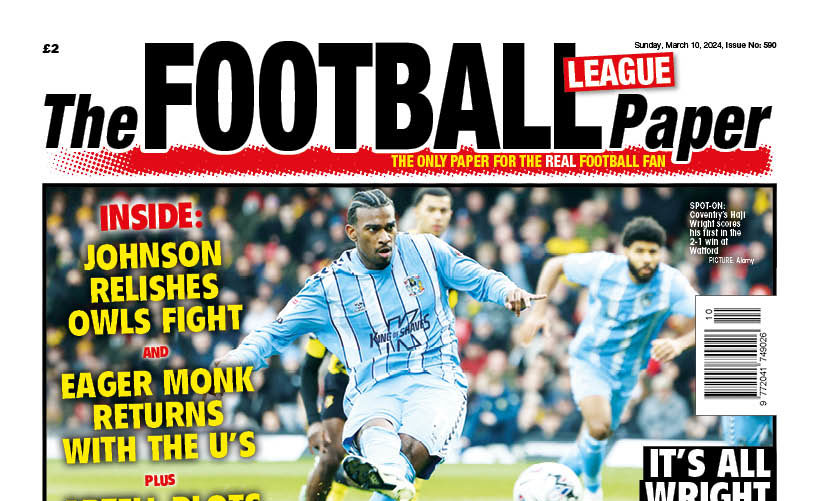The EFL Trophy has declined in appeal but with visionary remodeling of its format, the competition can reconnect with fans and help lower tier clubs.
The EFL Trophy – once known as the Associate Members’ Cup or Leyland DAF Trophy – has been through its fair share of transformations over the decades. But in recent years, the competition has faced mounting criticism – often labeled an inconvenience or hindrance by managers and fans.
So as we head into the next season, serious questions hang over the relevance and enjoyment provided by the Trophy. Is there still a place for it in the crowded English football calendar? Or does the tournament need a radical re-think to win back disenchanted lower league supporters?
In my view, rather than scrapping the EFL Trophy altogether, some careful restructuring could rejuvenate its appeal. There are ways to reshape the format, incentives and participant criteria that would make the early rounds more captivating. While the final at Wembley will always possess prestige, boosting intrigue in the initial group games is key.
Why Has the Trophy Lost its Luster?
To understand how to revive the EFL Trophy, we should analyze the reasons behind its decline. The biggest gripe has been the inclusion of Premier League academy teams since 2016. Fans of lower league clubs resent footing the bill to watch teenagers from Category One academies – often with tiny away followings.
Seeing sparse crowds for these David vs Goliath ties damages the atmosphere and intensity the EFL Trophy should represent. When facing Liverpool’s or Arsenal’s starlets, lower league players also have little to gain but their pride.
The revised format whereby 16 top academy sides join the competition in the second round has also been criticized. Some argue this overly complicates the tournament when simplicity and regionality were once its heart.
There is a sense the EFL Trophy has lost sight of its original purpose – providing silverware and Wembley trips for lower tier clubs while blooding young talent. The whims of the Premier League should not dictate its ethos.
Reconnecting with Fans
So how can the EFL better engage lower league fans and restore the Trophy’s reputation?
A priority should be introducing a ‘fans forum’ where supporters of the 72 EFL clubs suggest proposals to the organizers. Giving fans a voice on desired reforms could provide vital insight.
Some possibilities likely to appeal include:
- Scrapping academy sides’ automatic entry in favor of awarding it to non-league clubs via annual qualification matches. This would create locality and an extra chance of ‘giant-killing’.
- Introducing more regionalization in the draw and minimizing long midweek trips that are costly for fans. Create more local derbies.
- Seeding all League One and League Two clubs to enter in Round One. Currently some clubs join in Round Two or the second round group stage diluting the competition.
- Exploring ways to grow prize money and make it more equitable from early rounds so lower league clubs take it seriously regardless of progress.
Leveraging Tech to Attract the Next Generation
A crucial piece of breathing new life into the EFL Trophy is capturing the next generation of fans. While traditional supporters still flock to lower league grounds, there is a risk younger audiences may become disengaged from the domestic game.
The exponential growth of the Premier League and its worldwide appeal has raised expectations. Armchair fans are used to watching slick multi-million pound footballers each week – making part-time lower league stars seem ordinary.
So the onus is on the EFL Trophy to showcase lower tier clubs in an electrifying light to appeal to digitally native generations. This means leveraging technology and innovation in fan engagement.
One area to explore could be partnerships with gaming companies to promote the EFL Trophy through popular online slots and mobile phone game integrations. Just look at the rise of gambling sponsorships across the Premier League.
Why not bring that transition online and make the EFL Trophy a trailblazer for digital fan interaction? Hospitality packages at Wembley could be bundled with free spins through slot games on mobile phone at an official EFL Trophy online casino. Predictor games could have cash prizes where fans guess goal scorers and results each matchday.
In an age of Snapchat, Instagram, TikTok and YouTube, the Trophy could drive fun viral campaigns where fans film goal celebrations to win VIP experiences. These innovations create talking points.
There could even be scope to livestream selected matches through a dedicated EFL Trophy streaming app or YouTube channel. Making games more accessible, especially for those unable to attend fixtures on chilly Tuesday nights, broadens live audiences.
The EFL Trophy should not shy away from adopting an edgier tone either, similar to the Premier League’s evolving persona. For years, Fantasy Premier League has got workplace colleagues bonding over Transfer Deadline Day and agonizing captain decisions.
Why shouldn’t the EFL Trophy harness that competitive camaraderie through online predictor games tied to each round? Using technology to foster fans’ tribal instincts will enhance engagement.
These initiatives may outrage football purists, but could make the Trophy feel less like an exhibition to new generations.
Restarting at Grassroots Level
To really reconnect the EFL Trophy with lower league communities, why not start it exclusively at non-league level?
Picture this – the extra preliminary round involving only teams from the National League, National League North and South. 4 qualifying rounds would further reduce numbers, before the remaining non-league clubs join the 48 League Two clubs in Round 1 proper.
This would breathe new life into the early stages, capture local interest and give non-league sides a shot at Wembley. It provides a platform for less heralded clubs and players to enjoy the big stage. And once League One teams enter in the last 32, giant killings become more likely.
This structure makes the path to the final a story and a journey involving clubs at different levels – not just reserve sides from the top academies. It feels more egalitarian and aligned to grassroots football.
The tournament may need rebranding to reflect this vision. But opening it up to the whole football pyramid would get back to the roots of a competition anyone can dream of winning.
Incentivizing the Lower Leagues
Along with a format that excites fans, ensuring the EFL Trophy offers tangible incentives is critical. The current prize money of £100,000 for the winner feels meager when the cost to smaller clubs of fielding a team can outweigh financial gains.
Distributing a greater share of revenue to make participating more profitable at all stages is key. The Premier League’s riches could help cover this through an annual solidarity payment to the EFL Trophy pot.
There are also suggestions league points could be awarded for each win or draw, making progress impact promotion and relegation battles for lower league clubs. This could see teams take games more seriously.
Perhaps an additional wildcard play-off place for the EFL Trophy winner would also motivate clubs? It’s an established path into the Europa League for some domestic cups across Europe. This would make fighting to lift the trophy in front of 60,000 fans at Wembley all the more meaningful.
Protecting Young Talent
Despite the criticism, there are sound reasons why EFL clubs see benefit in fielding younger sides in the Trophy. With punishing league schedules, it gives first team players a break while youth and fringe men get minutes to impress.
The competition remains a showcase for the next generation. So a revamped EFL Trophy must still provide prospect pathways.
Whatever shape future reforms take, the EFL Trophy has great potential. With visionary thinking and willingness to experiment, the competition can rediscover its heart – thrilling both fans and developing players.
The ingredients still exist for it to provide drama, local pride and underdog spirit. There are ways to bridge the gap between the lower leagues and elite academies.
EFL Trophy history shows evolution is possible. We’ve had group stages, knockout rounds, Northern and Southern sections and more. Now is the time for progressive ideas to reignite their purpose.
With collective input, an energized EFL Trophy can be at the forefront of a flourishing football pyramid. A revamp may be its last lifeline, but executed shrewdly, the competition’s best days could still lie ahead.















